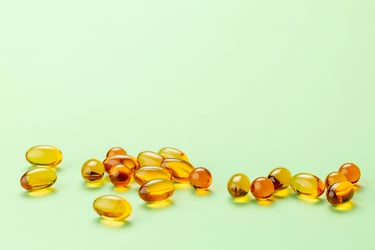eStoreRx™
Online Supplement Dispensary
Easy direct-to-patient ordering & fulfilment for Lifelong Wellness, eStoreRx™ is offered as part of the WholePractice membership or as a stand-alone program.
For over 40 years, Biotics Research Corporation has revolutionized the nutritional supplement industry by utilizing “The Best of Science and Nature”. Combining nature’s principles with scientific ingenuity, our products magnify the nutritional
This inclusive membership contains all of the the tools you need to grow your business, including WholeLifeRx™, Nimativ®, WholeLifeQ™, eStoreRx™ and Practice Success Programs.
Easy direct-to-patient ordering & fulfilment for Lifelong Wellness, eStoreRx™ is offered as part of the WholePractice membership or as a stand-alone program.
April 25 2024
The effect of a Mediterranean diet on both gastrointestinal (GI) and psychological symptoms among people with irritable bowel syndrome (IBS) was recen...
 A recent study summarized evidence from randomized controlled trials (RCTs) in an effort to “assess the efficacy of vitamin D supplementation” on decreasing glycosylated haemoglobinA1c (HbA1c) and fasting blood glucose (FBG) levels. Included in the evaluation were 24 studies that assessed HbA1c levels, along with 18 studies that assessed fasting blood glucose. Utilizing a systematic method of statistical analysis to integrate data from a number of independent studies, it was observed that “vitamin D supplementation was associated with reduced HbA1c levels (standardized mean difference (SMD) -0.25 [-0.45 to -0.05])”. No association was observed in the meta-analysis between vitamin D and FBG. However, when subgroup analysis was performed, vitamin D supplementation was associated with both reduced HbA1c levels (SMD -0.39 [-0.67 to -0.10]) and reduced FBG (SMD -0.27 [-0.46 to -0.07]) in patients initially having deficiency levels of vitamin D. Vitamin D supplementation was also correlated to “significantly reduced HbA1c levels, which included type 2 diabetes patients.+
A recent study summarized evidence from randomized controlled trials (RCTs) in an effort to “assess the efficacy of vitamin D supplementation” on decreasing glycosylated haemoglobinA1c (HbA1c) and fasting blood glucose (FBG) levels. Included in the evaluation were 24 studies that assessed HbA1c levels, along with 18 studies that assessed fasting blood glucose. Utilizing a systematic method of statistical analysis to integrate data from a number of independent studies, it was observed that “vitamin D supplementation was associated with reduced HbA1c levels (standardized mean difference (SMD) -0.25 [-0.45 to -0.05])”. No association was observed in the meta-analysis between vitamin D and FBG. However, when subgroup analysis was performed, vitamin D supplementation was associated with both reduced HbA1c levels (SMD -0.39 [-0.67 to -0.10]) and reduced FBG (SMD -0.27 [-0.46 to -0.07]) in patients initially having deficiency levels of vitamin D. Vitamin D supplementation was also correlated to “significantly reduced HbA1c levels, which included type 2 diabetes patients.+
Chunhua Wu, Shanhu Qiu, Xiangyun Zhu, Ling Li. Vitamin D supplementation and glycemic control in type 2 diabetes patients: A systematic review and meta-analysis. Metabolism Clinical and Experimental. August 2017 73: 67–76.
Submit this form and you'll receive our latest news and updates.
*These statements have not been evaluated by the Food and Drug Administration. This product has not intended to diagnose, treat, cure, or prevent any disease.
© 2023 Biotics Research Corporation - All Rights Reserved
Submit your comment